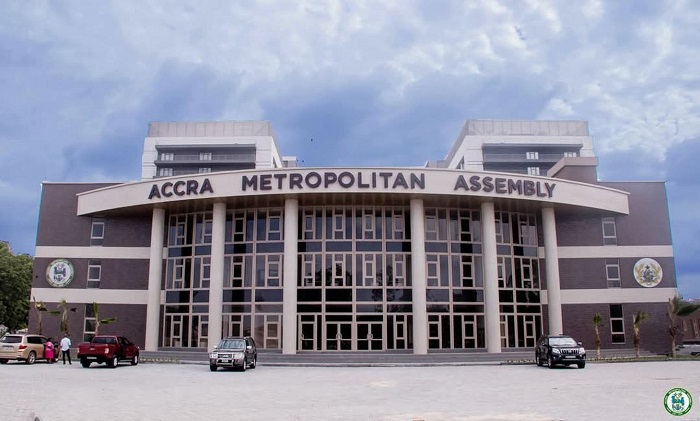The Majority in Parliament has downplayed the attempt by three members of the Minority to place an injunction on the implementation of the new Electronic Transfer Levy (E-levy).
The NDC legislators filed an injunction against the levy’s implementation at the Supreme Court on Tuesday, 19 April 2022.
The Ghana Revenue Authority (GRA) has announced that the revised rate slashed from 1.75% to 1.5% would take effect beginning 1 May 2022.
President Nana Addo Dankwa Akufo-Addo assented the E-LevyBill into law just before a Cabinet meeting at the Jubilee House in Accra on 31 March 2022, paving the way for it to be operationalised.
At a presser on Friday, the Majority Leader Osei Kyei-Mensah-Bonsu described the move by the NDC MPs as dangerous since there are internal parliamentary processes that the MPs could have resorted to.
The Suame MP stated that the E-levy would be implemented as announced, and nothing could stop it.
“We’ve been told that they have filed an injunction, the Minority has taken the matter to the Supreme Court for the Court to rule on the supposed unconstitutionality on the votes that was taken on the E-levy. I will just say that the burden of proof lies with the Minority to go to court and prove their case.
“So, if the representation of the House has taken a decision they can come with a motion on the decision. Why don’t they want to do that? But as I said the burden of proof is on them. Now, finally on the injunction I don’t want to pronounce anything but I guess you and I know that it is an exercise in futility,” he added.
Background
Minority Leader Haruna Iddrisu, Bawku Central MP Mahama Ayariga and North Tongu MP Samuel Okudzeto Ablakwa filed an injunction at the Supreme Court against the implementation of the Electronic Transfer Levy (E-levy).
The trio, in their application urged the apex court to restrain the Ghana Revenue Authority (GRA) from implementing the new tax.
They argued that millions of people will suffer irreparable harm if the E-Levy Act is not put on hold and the court determines that its passage was unconstitutional.
According to them, the GRA would be unable to reimburse the millions who would have paid the E-levy, while the 1992 Constitution which is the supreme law of the land would have been undermined.
“That the Plaintiffs having raised an allegation of a breach of the Constitution in the passage of the Electronic Transfer Levy Act, 2022(Act 1075), in order to avoid an incalculable damage, injury and inconvenience not only to the people of Ghana but as well as undermining the Constitution which is the supreme law of the land, the justice of the case demands that the implementation of the Electronic Transfer Levy Act, 2022(Act 1075) is put on hold until the final determination of the instant suit,” the injunction application stated.
The three MPs in their substantive suit want the apex court to declare the passage of the E-Levy as unconstitutional and therefore null and void.
It is their case that Parliament did not have the right quorum to pass the E-Levy as stipulated under Article 104(1) of the 1992 Constitution, which the Supreme Court had recently interpreted.
According to them, at the time the second reading for the passage of the E-Levy was done, there were only 136 MPs present in Parliament instead of the required 138.
Therefore, they want the court to declare the whole proceedings including the second reading, third reading, and voting to pass the E-Levy, as unconstitutional and of no effect.
They had filed an earlier application against the E-Levy on 30 March 2022.
Parliament on Tuesday, March 29 approved the policy without the participation of the National Democratic Congress (NDC) MPs, after they staged a walkout during the E-levy debate.
They are seeking the following reliefs;
a. A declaration that on the authority of the Supreme Court case of Justice Abdulai v. Attorney-General, Writ No. J1/07/2022 dated 9 March, 2022, the constitutional quorum number for decision-making and voting within the meaning of Article 104 (1) of the 1992 Constitution is 138 Members of Parliament out of the 275 Members of Parliament and not 137 Members of Parliament.
b. A declaration that on a true and proper interpretation of articles 2(1)(b) and 104(1) of the 1992 Constitution of Ghana, there was no quorum to enable the 137 Members of Parliament of the Majority Caucus present in Parliament on 29 March, 2022 to pass the Electronic Transactions Levy (‘’E-Levy’’).
c. A declaration that on a true and proper interpretation of Article 104(1) of the 1992 Constitution of Ghana, the passing of the Electronic Transactions Levy (‘’E-Levy’’) by the 137 Members of Parliament of the Majority Caucus present in Parliament on the 29th March 2022 without the requisite quorum number of 138 Members of Parliament present in Parliament, is null and void and of no legal effect.
d. An order of the Honourable Court setting aside the passing of the Electronic Transactions Levy (‘’E-Levy’’) by the 137 Members of Parliament of the Majority Caucus present in Parliament on the 29 March, 2022 as a nullity.
e. Any other order(s) the Honourable Court may deem fit.
What is the E-levy?
The E-levy is a tax applied on transactions made on electronic or digital platforms. The Minister for Finance announced in parliament the intention to implement the bill where 1.75% will be taxed on all digital transactions during the presentation of the 2022 budget.
The E-Levy is expected to generate an estimated amount of GH¢ 6,96 billion in 2022, GH¢7.89 billion in 2023, GH¢8.92 billion in 2024 and GH¢10.09 billion in 2025.
It is also one of the measures to increase the country’s tax to Gross Domestic Product (GDP) ratio from 13 per cent to 16 per cent.
According to Mr Ofori-Atta, the E-Levy will not be applicable for the following:
- Cumulative transfers of GHC100 per day made by the same person.
- Transfers between accounts owned by the same person.
- Transfers for the payment of taxes, fees and charges on the Ghana.gov platform
- Electronic clearing of cheques.
- Specified merchant payments (that is, payments to commercial establishments registered with the GRA for income tax and VAT purposes).
- Transfers between principal, master agent and agent’s accounts.
On the other hand, the E-Levy will be charged fully on the following:
- Mobile money transfers between accounts on the same electronic money issuer (EMI).
- Mobile money transfers from an account on one EMI to a recipient on another EMI.
- Transfers from bank accounts to mobile money accounts.
- Transfer from mobile money accounts to bank accounts.
- Bank transfers on a digital platform or application which originate from a bank account belonging to an individual to another individual.
The levy had divided parliament, with the Majority pushing for approval while the Minority kicked against it.
There was a split vote of 12 for each side at parliament’s finance committee until the chairman cast the decisive vote favouring the proposal.
Parliament degenerated into fisticuffs at a meeting to approve the levy prompting an adjournment to 18 January 2022.
The Chamber turned chaotic as MPs pushed, shoved and punched each other during the heated exchanges that many observers have since condemned.
This was after the Speaker of Parliament Alban Bagbin, had left and delegated the First Deputy Speaker, Joe Osei Owusu, to take over proceedings.
The Minority had said it would do all it could to ensure that the bill did not see the light of day, insisting it was not in the best interest of Ghanaians.
















